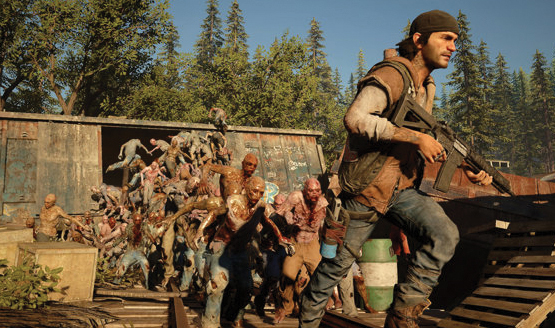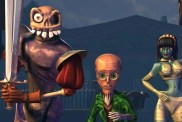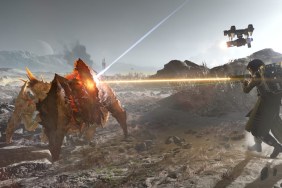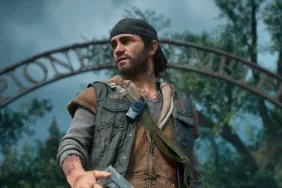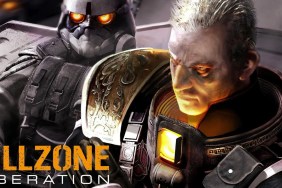In hindsight, to say that Sony came out swinging during its E3 showcase may read as something of an understatement. Trumpeting one of the strongest first-party lineups in PlayStation history, the platform-holder kicked things off with a Nordic bang thanks to Sony Santa Monica’s God of War, followed in quick succession by Days Gone, The Last Guardian, Horizon Zero Dawn and Detroit: Become Human, the latest narrative-driven adventure arriving by way of Quantic Dream.
Sandwiched in between such an impressive roster of heavyweights, Sony Bend’s PS4 exclusive didn’t necessarily light up the stage in the manner of, say, Horizon in 2015, even when you factor in the extended gameplay demo that brought the curtain down later in the evening.
Crowd Control
Indeed cast one eye over your go-to forum or Reddit thread and you’ll find that the Days Gone unveiling has garnered a mixture of apathy, curiosity and tempered excitement. That’s not all that surprising either, considering that Bend’s long-anticipated new IP has been pitched as a post-apocalyptic zombie-infested action game — a post-apocalyptic zombie-infested action game in 2016, that is.
Point is, we’ve laid eyes on countless variations of the Doomsday scenario across practically every creative medium, and coming out of E3 2016, there was a general feeling of ‘been there, done that’ directed at Days Gone.
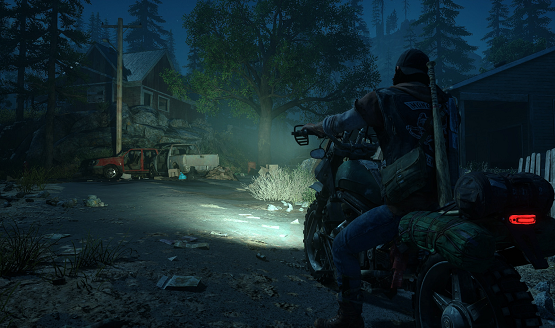
But just as The Last of Us had its roots in the apocalyptic genre — and in particular Cormac McCarthy’s The Road — Bend’s upcoming PS4 title doesn’t necessarily have to reinvent the wheel to become a sure-fire hit.
Situated in the Pacific Northwest, Days Gone chronicles the story of one Deacon St. John, a wayward biker and former bounty hunter who stalks the backwoods of Oregon two years on from a global pandemic.
The exact specifics of that pandemic remain shrouded in mystery — is it airborne? Perhaps some form of viral mutation? Who or what is patient zero? — all we do know is that the vast majority of humanity has been wiped out; either killed off or reduced to flesh-munching creatures.
The Pacific Northwest Awaits
First and foremost, this is not your typical zombie game. Coming out of E3 2016, Sony Bend stressed that the enemies you face in Days Gone are a different breed of flesh eaters known as Freakers. They eat. They drink. They sleep. And, as that extended gameplay demo teased, come in different varieties; Newts and Hordes being the two types that we’ve clocked eyes on thus far.
Infected by a virus strand that keeps their blood pumping and bellies hungry, on paper, the Freakers make for a formidable foe, and we’ve seen what happens when Deacon comes face to face with a seemingly relentless swarm. It’s one of the reasons why Bend places Days Gone “on the other end of the spectrum” to Naughty Dog’s magnum opus — more “extreme;” more “over the top” — and if we’re sticking to tit-for-tat comparisons, so far, the studio’s new IP is shaping up to be the lovechild of World War Z and Sons of Anarchy.
Opting for life on the road over the relative safety of quarantine zones, Deacon has the lush open world of Oregon at his disposal, with the game’s crafting system allowing players to fall back on a MacGyver mentality as they carve out a means of survival in the Pacific Northwest.
From what we understand, this is an outlaw biker trying to make ends meet in a brutal, dangerous world, and Bend notes that Deacon also happens to be shouldering an identity crisis as he comes to terms with a life without the safe haven of his motorcycle gang.
Themes of brotherhood and family appear to be integral to Days Gone, and in a recent post to PlayStation Blog, Creative Director Ron Allen outlined how Bend’s new IP is really about the human condition.
“It’s about the human condition — this guy’s a broken man. A lot of us are motorcycle riders. It’s a really vibrant culture. It’s often associated with criminals, mayhem, and violence, but it’s also about brotherhood and family. Because Deacon has suffered so much loss he holds on to that aspect of his past, and cherishes those relationships. It’s about him finding himself, because he no longer has his motorcycle gang.”
How the developer plans to construct a story around this core premise is up for question, but that narrative nugget — one of a broken man living it out in a broken world — is intriguing right off the bat. Is Deacon licking his wounds from a family loss? Perhaps our new hero is on the hunt for a missing loved one?
Days Gone may be packed to the rafters with post-apocalyptic tropes — the desolate world, the sense of hopelessness — but here’s hoping that Sony Bend’s PS4 debut skates around those genre conventions at risk of cliché.
A Pacific Northwest setting is downright fascinating and even at this early stage, Days Gone is certainly easy on the eyes. But why place a stranglehold on originality by having players spend much of Deacon’s journey searching for some form of cure? Days Gone would be better served if it really doubled down on a disbanded motorcycle club at war with itself and those humans still clutching to the last vestiges of life. Fight the dead, fear the living.
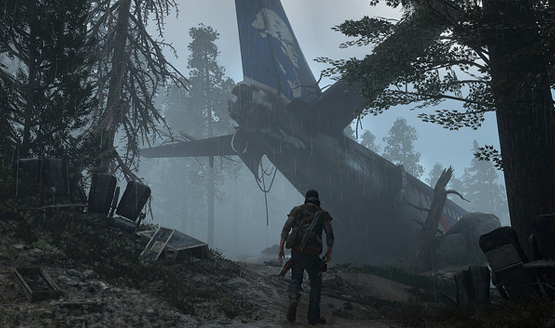
It’s this dynamic that will instil a sense of character drama into the post-apocalyptic action, and though Deacon appears to fit the lone wolf archetype on first glance, the extended gameplay demo teed up a potential riff with another survivor (possibly from the same motorcycle club?) which ought to offset the thrill garnered by mowing down waves upon wave of the undead.
For now, it’s merely conjecture. Three weeks on from Sony’s overly successful E3 showcase, the general consensus on Days Gone remains mixed. It is, much like many of the games showcased, still without a release date at the time of writing, with Sony’s concluding title card simply stating that Days Gone is, much like God of War and Detroit: Become Human, currently “in development for PS4.”
No matter the case, Days Gone represents Sony Bend’s first console release since Syphon Filter: Logan’s Shadow in 2010 and if nothing else, for me, that’s reason enough to get excited.
Essential Reading:
- 10 Disappointments From Sony’s E3 2016 Press Conference
- Versus – 4K vs 60fps Gaming
- PlayStation New Releases for July 2016 Spotlight
PS4 Remastered Games - Which Were Done Right?
-
PS4 Remastered Games - Which Were Done Right?

-
Resident Evil Zero HD
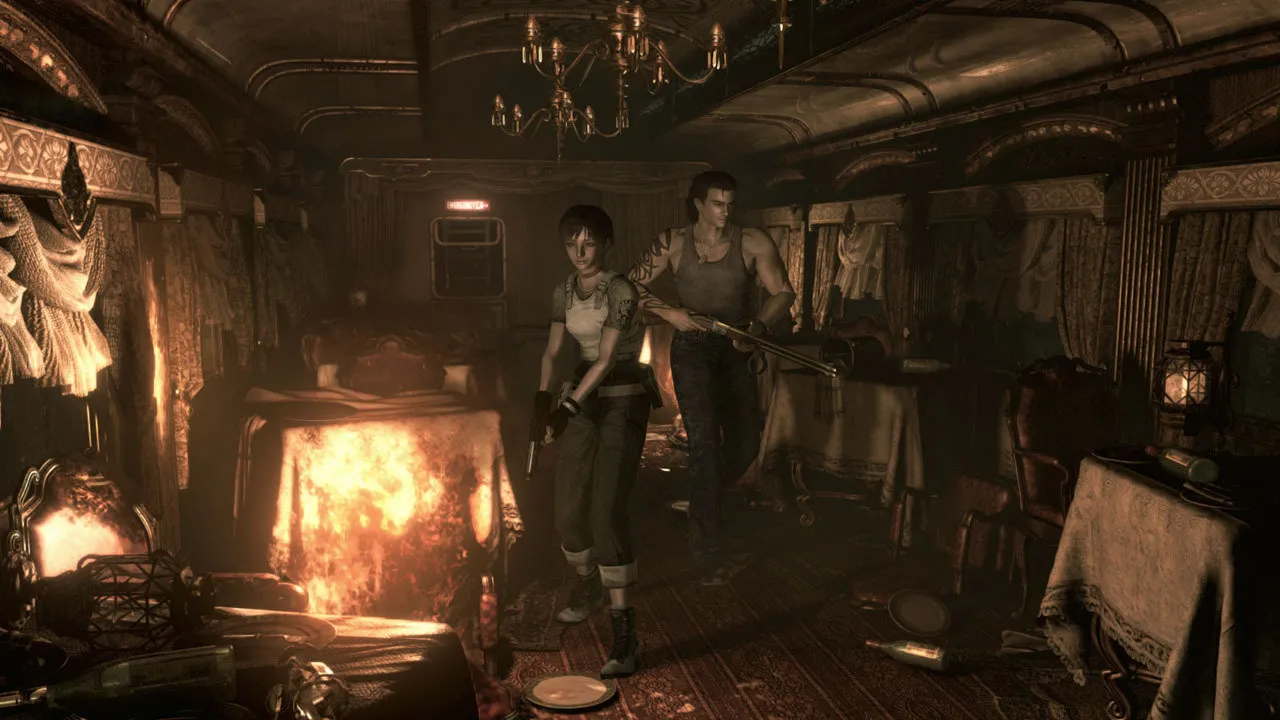
What It Did Right & Wrong: Capcom has a pretty darn good track record with remasters and Resident Evil Zero HD is no exception. The game looks absolutely gorgeous (thanks to new lighting effects), and even features a new character to play (Wesker!). Sadly, there is some tiny frustration as Wesker Mode isn't unlocked until the player has completed the game, which is weird in a re-release.
-
Sleeping Dogs: Definitive Edition
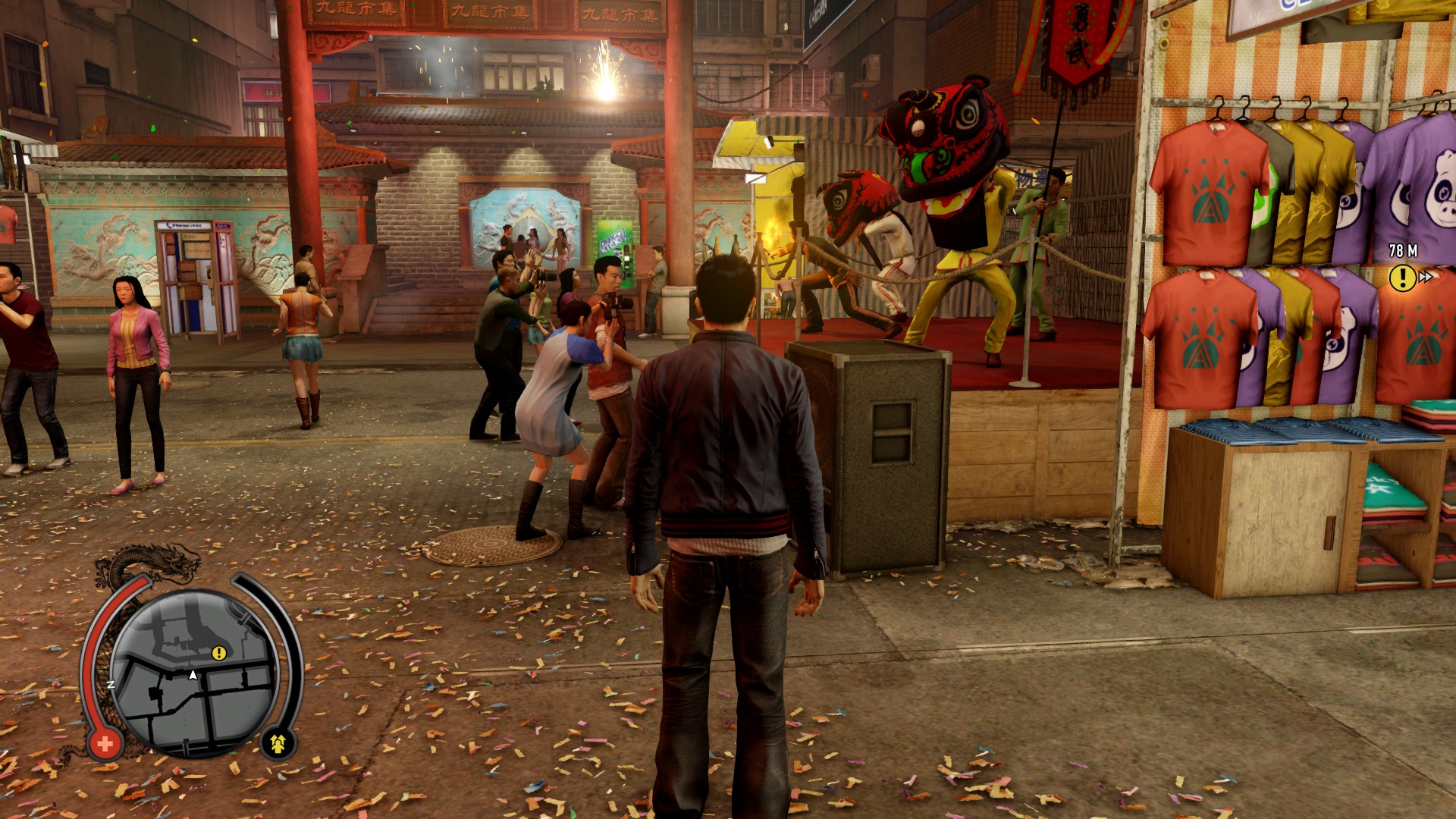
What It Did Right & Wrong: Sleeping Dogs: Definitive Edition is basically the standard of what players should expect from recent remasters. It includes all of the game's DLC, it looks as good as the PC version, and runs smoothly. It doesn't go the extra mile to fix some of the game's flaws, but it's the best version of Sleeping Dogs.
-
Valkyria Chronicles Remastered
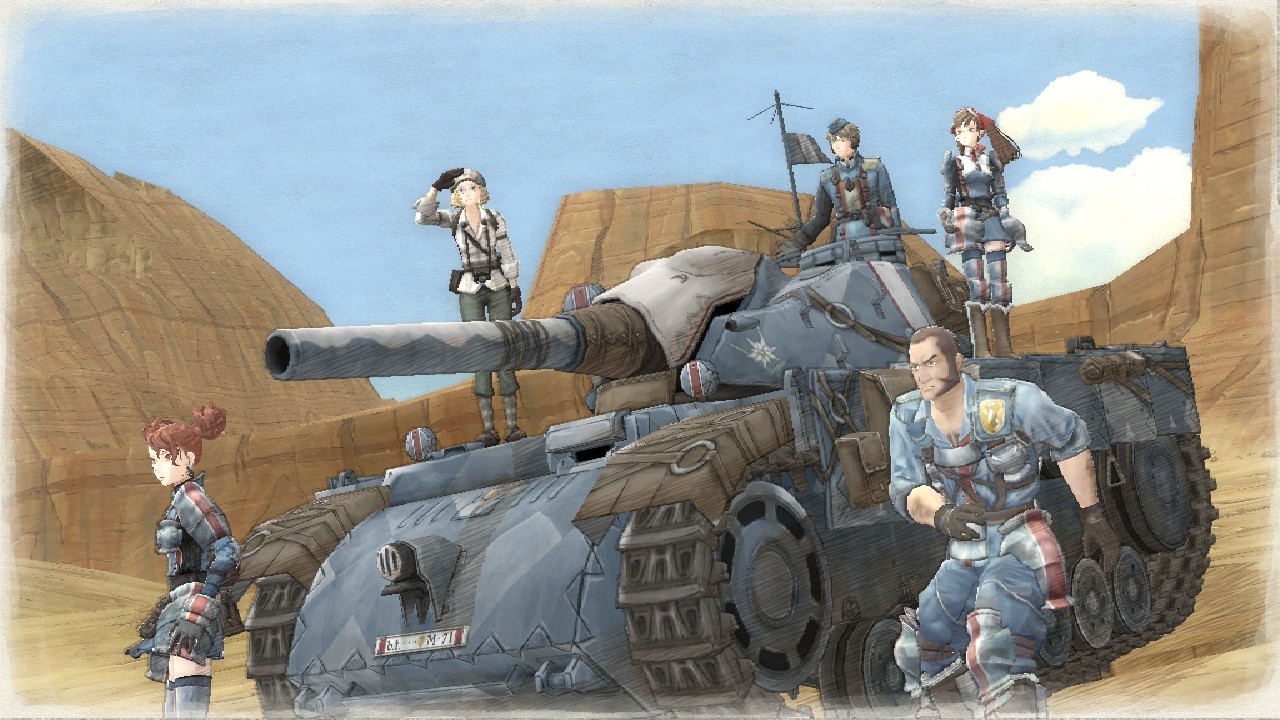
What It Did Right & Wrong: Valkyria Chronicles Remastered does a really good job of getting Valkyria Chronicles running on PS4. If that's all you want, then it's great. Sadly, the game is starting to show its age, and a few simple tweaks to the gameplay (and a difficulty option) could've made this a much better game in 2016.
-
Shadow Complex Remastered
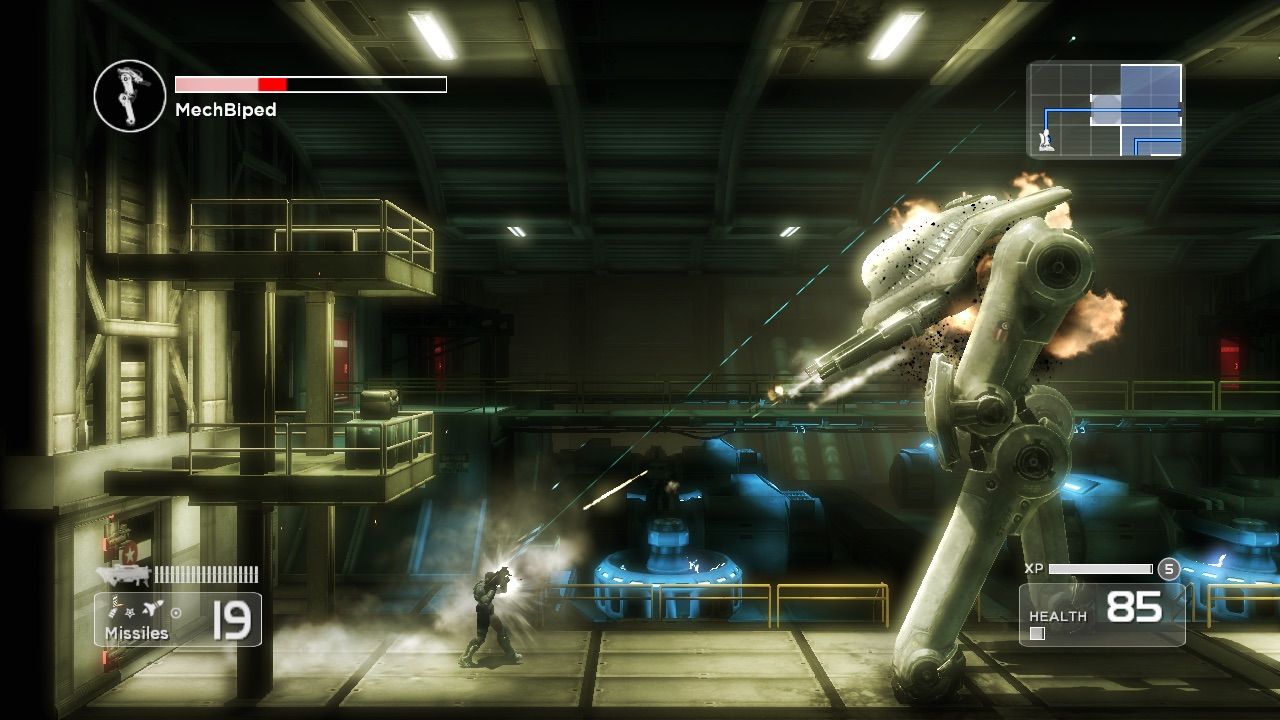
What It Did Right & Wrong: Shadow Complex Remastered is a lot like God of War III Remastered as both games are using the original assets at a higher resolution. So while Chair Entertainment's fantastic Metroidvania is still ultimately an Xbox 360 game at heart, it's a damn good looking one. Also, the release doesn't feature many extras, which is pretty disappointing. The addition of fast travel would've really opened up the game, but there's also something respectable about keeping the original game intact.
-
Day of the Tentacle: Special Edition
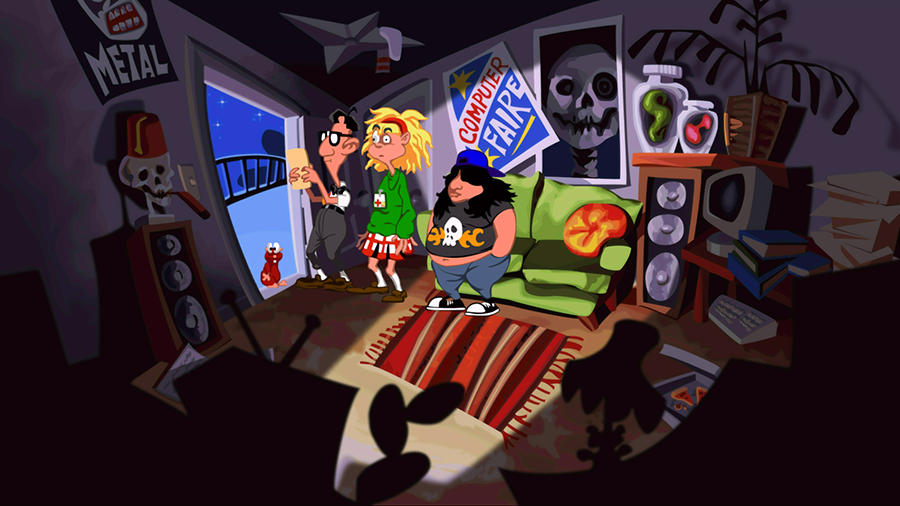
What It Did Right: Day of the Tentacle: Special Edition is one of the best remasters on this list. Not only did Double Fine create brand new visuals for this release, they're based off the original artwork. It's like getting to play the original vision of the game, that wasn't able to be made due to technical limitations. On top of that, there's new control schemes, great developer commentary (more of this, please!), and the ability to look at the original game. It's a stellar release.
-
Dead Island Definitive Collection
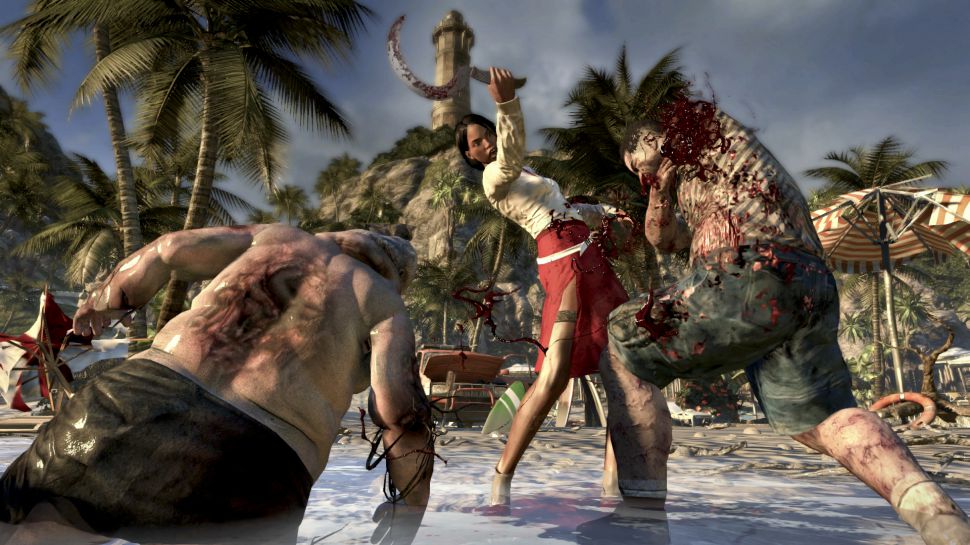
What It Did Right & Wrong: The Dead Island games had their own charm on PS3 (which was largely thanks to the game's fantastic analog combat), but it also had a ton of flaws. Dead Island Definitive Collection was a chance to fix a lot of these weak points, and instead nothing got changed. This collection is just as glitchy (if not glitchier) than the original games, and it's only slightly better looking. While it's cool that gamers can now chop off zombie limbs on PS4, this just didn't do enough to make it worth another go.
-
Gravity Rush Remastered
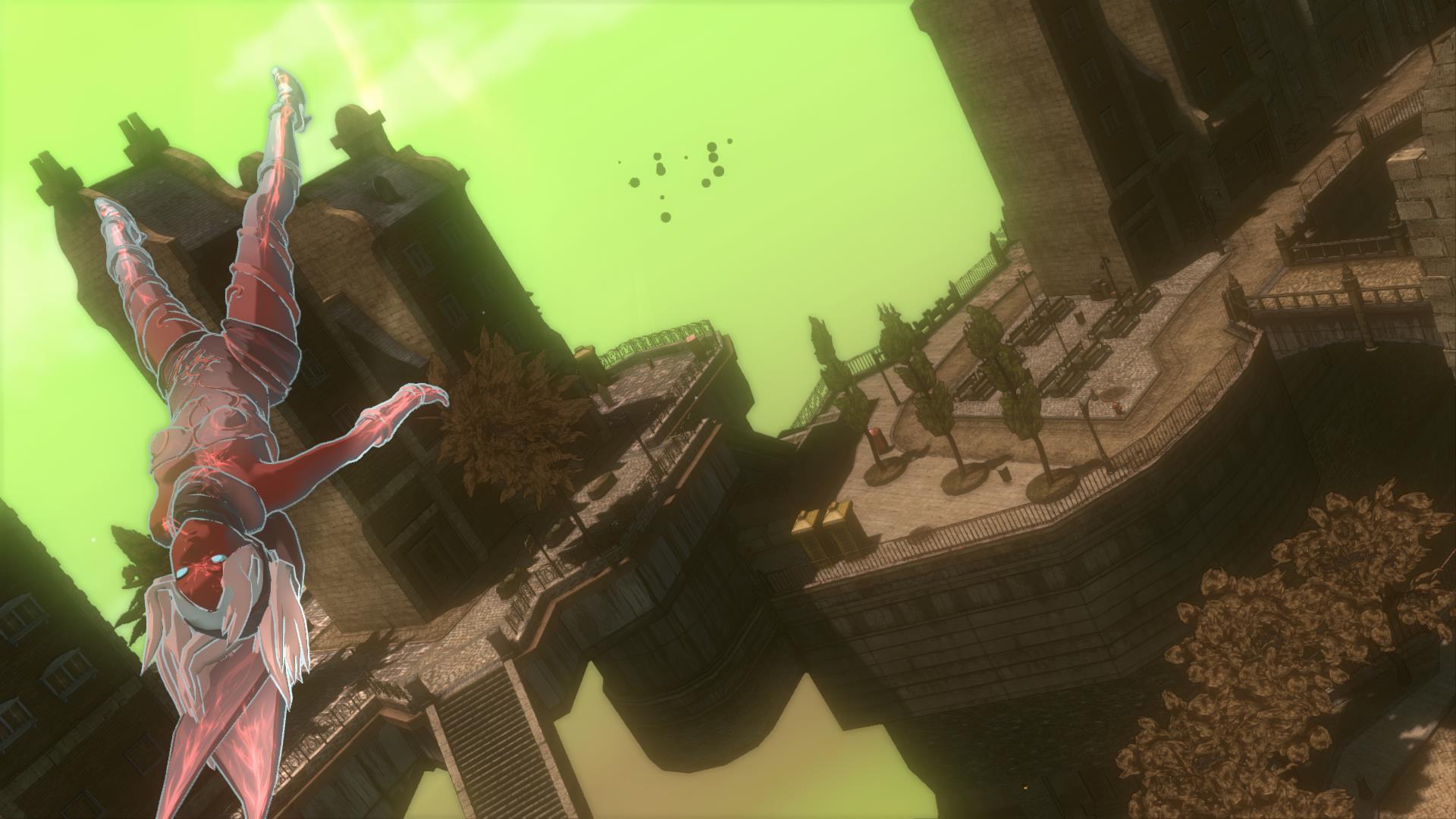
What It Did Right & Wrong: Gravity Rush Remastered was good on the Vita, but it was truly great on PlayStation 4. The core gravity shifting mechanics felt a tad bit clunky in the original, but can be done with ease with a DualShock 4. The game also still holds up graphically, although that's solely due to the game's art style as character models look pretty bad when examined closely.
-
Odin Sphere: Leifthrasir
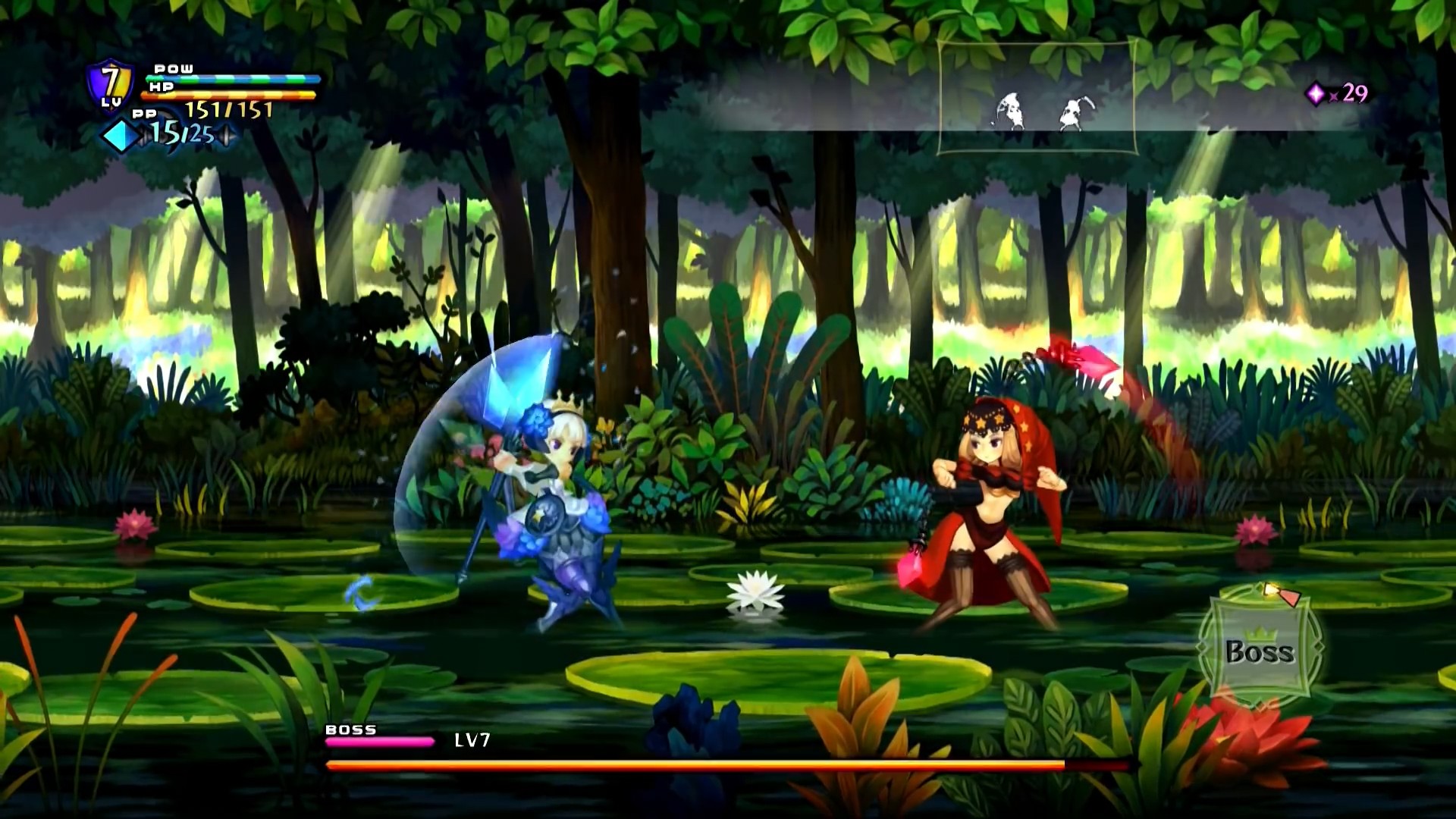
What It Did Right: Odin Sphere: Leifthrasir is probably the best example of a remastered version of a game ever. In fact, it arguably goes into remake territory, but nonetheless Vanillaware took their time and addressed the many flaws that the original game had. A remastered version should be a second chance at getting the best possible game out there, and that's exactly what the developer did. More interesting level designs, better boss fights, smoother combat, enhanced lore. Literally everything is better in Leifthrasir.
-
Uncharted: The Nathan Drake Collection
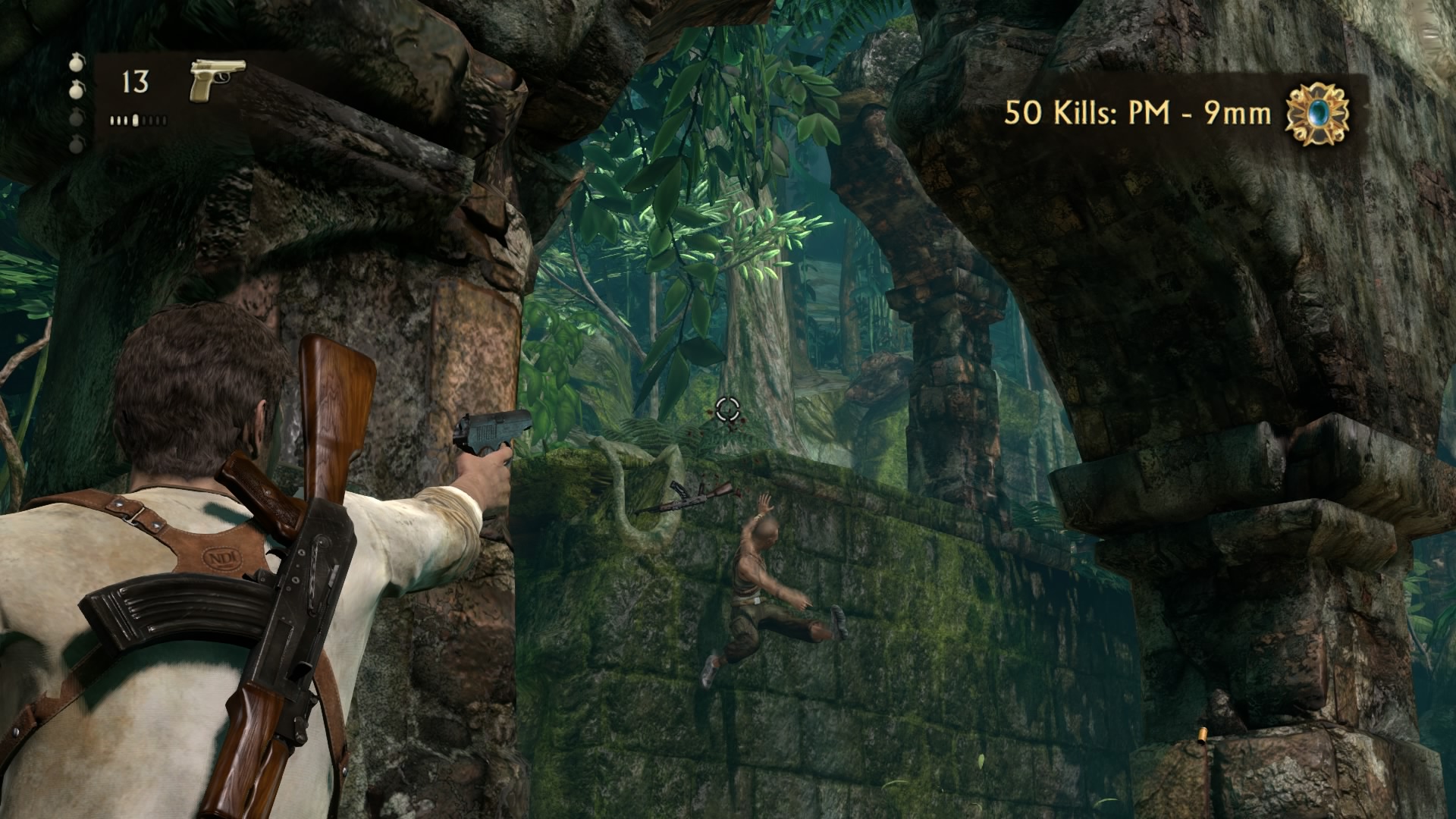
What It Did Right & Wrong: Few remasters are as gorgeous as Uncharted: The Nathan Drake Collection is. Bluepoint Games did their usual stellar job technical wise, but even then they can't make Uncharted: Drake's Fortune feel enjoyable in 2016. One disappointment is that this collection actually is missing features the original games had, namely multiplayer.
-
DmC: Devil May Cry Definitive Edition
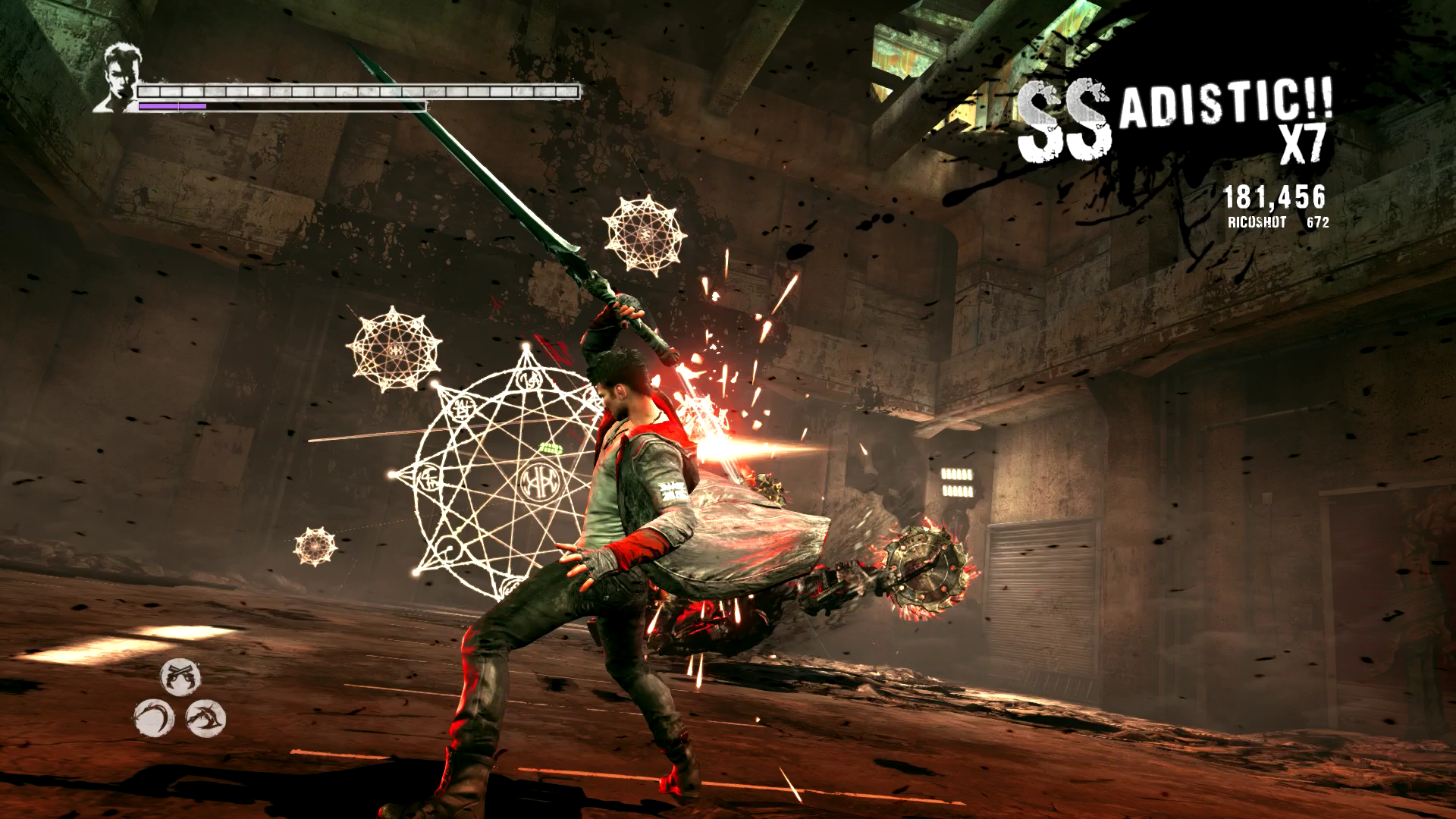
What It Did Right: DmC: Devil May Cry Definitive Edition turned one of the best character action games in recent memory to one of the best ever made. Not only does the game include all of the original game's DLC (playing as Vergil is so much fun!), but Ninja Theory went back and added new difficulty modes to the game. Throw in a smooth framerate of 60fps, and you have one of the best looking and playing games on PS4.
